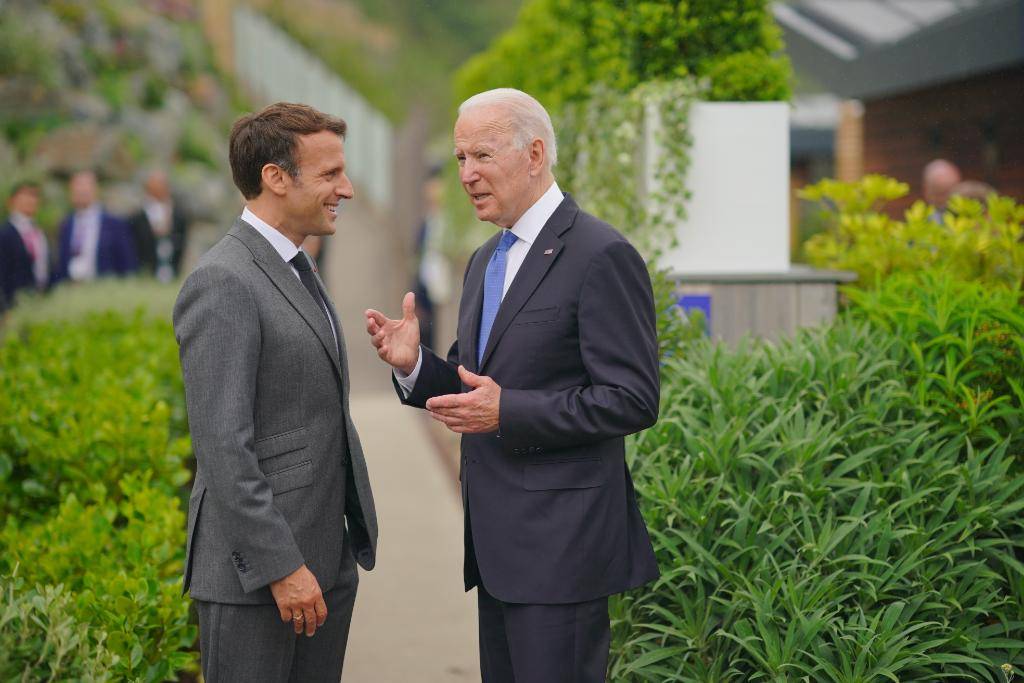
EU officials say that the US Inflation Reduction Act risks unfairly discriminating against its own products and that it goes against international trade rules…reports Asian Lite News
European trade ministers gathered in Brussels to discuss the “discriminatory” US Inflation Reduction Act but with just over a month to go before the legislation comes into force, there appears to be no concrete solution on the table yet.
The main issue for Europe is to ensure it doesn’t enter into a trade war with the US which could splinter western unity in the face of Russia’s illegal war on Ukraine.
“The Inflation Reduction Act as it stands now is quite worrisome, very worrisome, to be honest,” Liesje Schreinemacher, the Dutch Minister for Foreign Trade and Development Cooperation, said upon her arrival at the Foreign Affairs Council.
“We have to take it step by step. I want to avoid a trade war by any means because it hurts the US economy, it hurts the European economy. So no one benefits from any trade war.”
Her Irish counterpart, Leo Varadkar, meanwhile said that the US legislation has “put a spanner in the works” in trade relations between the US and EU.
Washinton’s $430 billion anti-inflation bill includes state aid to boost US manufacturing and incentives for consumers to buy American products including cars, batteries and renewable energies. It was signed into law in August and will come into force next year.
EU officials say that the bill risks unfairly discriminating against its own products and that it goes against international trade rules.
“There are $367 billion of US subsidies, of which $200 billion are actually not WTO (World Trade Organisation) compliant,” Olivier Becht, French Minister for Foreign Trade and Attractiveness told reporters.
And with energy prices much higher in Europe than in the US as a result of the war in Ukraine, there is an added fear that many flagship European industries could relocate across the Atlantic to take advantage of local state aid and lower energy costs.
A joint EU-US Task Force to resolve the issue has been set up and two meetings have now taken place. A third is to be held soon. The bloc’s position is that its manufacturers should be granted the same access to the US market as those from Mexico and Canada.
Valdis Dombrovkis, the Commissioner for Trade, also said during a press conference held after the meeting that “we want and expect European companies and exports to be treated in the same way in the US as American companies and exports are treated in Europe.”
The issue will also be addressed between the two sides when they convene on 5 December for a Trade and Technology Council. Launched in June 2021, the forum aims to bolster cooperation between the EU and US in strategic economic areas.
Johan Forssell, Sweden’s Minister for Foreign Trade and International Development Cooperation, had earlier forecasted that “the need for action will be pretty soon”.
“The Task Force has another couple of weeks to go, very forced time schedule here,” he went on. “I think we cannot wait too long until we make a decision because I mean, the IRA, the decision has already been made in the US and this has started happening now.”
Varadkar also said that Ireland hopes that a solution can be found at the negotiating table but also emphasised that “I think it’s fair to say that absent that, there will have to be a response from the European Union”
“Nobody wants to get into a tit-for-tat or a subsidy race. But what the US has done really isn’t consistent with the principles of free trade and fair competition,” he added.
Taking the matter to the WTO is largely deemed a dead-end as efforts to reform the organisation have been stalled for years. The main issue is its dispute settlement system which the US has more-or-less abandoned, turning instead to a bilateral approach to resolve its issues with other countries.
“We also know that taking the dispute to the WTO if the Dispute Settlement Body is not changed, well that is also a risk,” France’s Becht noted.
The solutions he mentioned “could be either coercive or obviously support our own companies, here on European soil.”
France has publicly supported a so-called “Buy European Act” to counter the Inflation Reduction Act and the large subsidies the Chinese state gives to its own companies.
President Emmanuel Macron is largely expected to address the topic with US President Joe Biden when he visits Washington next week.
But Czech trade Minister Josef Sikela also warned against a subsidy race, calling it a “very dangerous game and usually the winner might then sit on the other continent and not in Europe and not on the American one”.

Dombrovskis argued instead that the bloc needs to work on boosting its attractiveness for investments and industrial production.
“Part of the response is obviously in (the) energy sector because it is (the) current high energy prices which are causing substantial problems and loss of competitiveness for our industries, something which we need to address.”
“Obviously we need to take a look also at our own subsidies because we’re also providing large amounts of subsidies in the context of greening our economy but in a sense look at how we can make them in a more targeted and efficient way to reach those results,” he said.
ALSO READ-European lawmakers declare Russia ‘state sponsor of terror’


